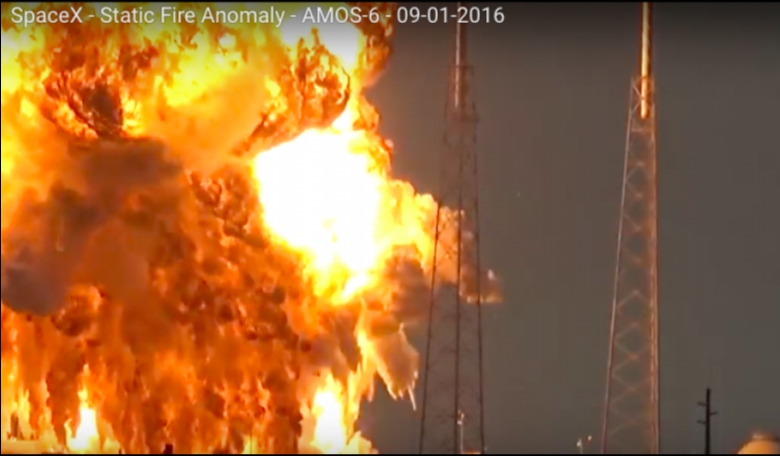A SpaceX Falcon 9 launch vehicle has exploded during a static fire test on September 1, in Cape Canaveral, Florida. The Falcon 9 was scheduled to launch on September 3 with the Amos-6 communications satellite payload for the Israeli satellite operator Spacecom.
According to SpaceX CEO Elon Musk's twitter, the explosion originated around the Falcon 9's upper state liquid oxygen tank while it was being loaded in the minutes before the static fire test. The cause of the explosion is yet unknown. No one was injured during the explosion, but both the Falcon 9 rocket and the Amos-6 communication satellite were destroyed. “SpaceX can confirm that in preparation for today’s static fire, there was an anomaly on the pad resulting in the loss of the vehicle and its payload. Per standard procedure, the pad was clear and there were no injuries,” SpaceX said via Twitter.
The explosion has serious implications for a number of high-ranking players in the space industry. The destruction of the Amos-6 satellite jeopardizes Spacecom's acquisition by the Beijing Xinwei Technology Group. The deal was contingent on Amos-6 performing successfully after the planned September launch. SpaceX was planning up to nine Falcon 9 launches by the end of 2016, all of which will now be delayed. Iridium is immediately affected as it planned to launch the first ten satellites of its constellation in the second half of September on a Falcon 9. SES had also planned to launch its SES-10 and SES-11 satellites on separate Falcon 9 launches this year, and NASA was planning a Dragon cargo mission to the ISS in November of this year.
Senator Bill Nelson, whose single space shuttle flight ended 10 days before the Challenger disaster in 1986, issued a statement in which he said that the Falcon 9 explosion "reminds us all that space flight is an inherently risky business. As we continue to push the frontiers of space, there will be both triumphs and setbacks. But at the end of the day, I'm confident that our commercial space industry will be very successful.”











